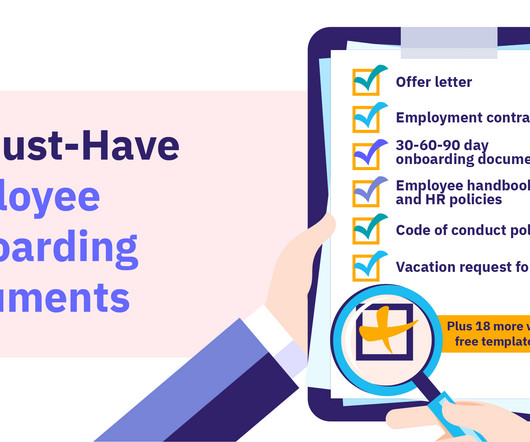18 Must-Have Onboarding Documents (+ Free Templates)
Analytics in HR
APRIL 22, 2024
Onboarding documents typically include legal paperwork such as your employment contract, company policies, handbooks, and code of conduct, along with role-specific details such as job descriptions, manager and team contacts, and more. Learn more Offer Letter vs Employment Contract: 10 Key Differences 2.



















Let's personalize your content